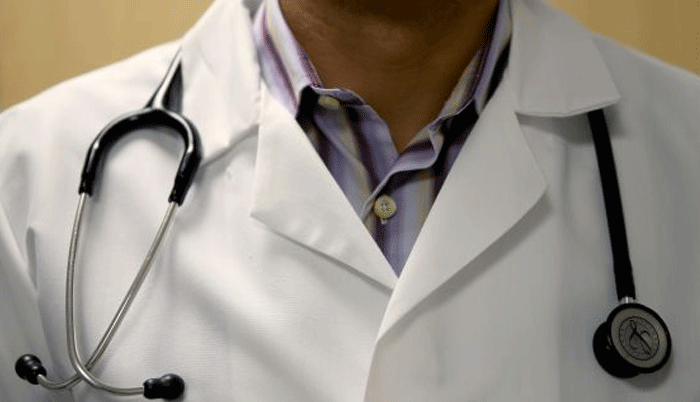![]() Home > Singapore
Home > Singapore
Use ‘Cost-Plus’ Approach To Calculate Admin Fees Paid By Doctors: Industry Groups

![]() December 15th, 2016 | 08:18 AM |
December 15th, 2016 | 08:18 AM | ![]() 1214 views
1214 views
SINGAPORE
Administrative fees paid by doctors should be based on a “cost-plus” methodology — the costs incurred by a third-party administrator (TPA) for providing its service, plus an appropriate profit margin, said three organisations representing the medical and dental professionals here on Wednesday (Dec 14).
They were responding to the Singapore Medical Council’s (SMC) impending move, which was announced on Tuesday, to effectively bar doctors from paying fees to TPAs that are calculated as a percentage of fees these doctors charge their patients.
In a joint statement, the Singapore Medical Association (SMA), the College of Family Physicians Singapore (CFPS) and the Academy of Medicine, Singapore (AMS), however said that such fee arrangements might not be in breach of new ethical guidelines in “very specific and limited circumstances” — if the TPA fee represents a “small percentage” of the doctors’ fee, and if the doctor’s practice is such that the vast majority – over 80 per cent, for example — of bill sizes falls within a “narrow range”.
The SMA represents the majority of doctors here, while the CFPS promotes family medicine. The AMS is a professional institution of medical and dental specialists advancing postgraduate specialist training.
TPAs are companies that process medical claims for employers, insurers and doctors. The three groups said a fixed fee structure reflecting actual work done by TPAs is ideal, but a percentage fee structure “may provide a level of administrative convenience”.
Percentage fees might not be in breach of the new ethical code and guidelines for doctors “so long as the way in which the percentage fee structure was derived is specifically based on a genuine estimate of the services being provided by the TPA”, they said.
TPA fee structures have been the subject of concern and debate recently because a few TPAs were charging fees of up to 25 per cent of doctors’ professional fees — in some cases, for merely the “referral” of patients on a particular insurance scheme or panel.
On Tuesday, Singapore Medical Council (SMC) president Tan Ser Kiat had said in an advisory that paying percentage fees to TPAs may be construed as a form of “fee-splitting” and could inadvertently promote cost escalation. This is because the amount of TPAs’ work does not vary based on the fees that doctors charge their patients, said Professor Tan.
The new ethical code and guidelines take effect from Jan 1, but the provision against the payment of prohibited fees will be enforced from July 1 next year to give doctors time to modify or pull out of TPA agreements that breach the rules.
Prof Tan’s advisory addressed some points of the new guidelines — released three months ago — that doctors had wanted more clarity on.
Approached on Wednesday, the SMC — a statutory board that regulates doctors — noted the views of the three organisations but did not say if it agreed with their stand. “To reiterate, any fees paid to third parties must reflect actual work done by the third parties and be transparent to the patient or payer. We have nothing further to add to the SMC advisory or the joint opinion of AMS, CFPS and SMA,” said the council.
SMA past president and council member Wong Chiang Yin noted that the SMC’s advisory did not state that percentage fees are not allowed. Doctors who continue to pay percentage fees have to prove “why these percentages do not constitute fee-splitting, when they are queried by the authorities. And they must be prepared to defend this practice”, Dr Wong said. On what could be called a “small” percentage, he said it would be anything that approximates the cost of service provided by the TPA, with a reasonable profit margin. “It depends on the context. A 5 to 15 per cent fee for a bill of about S$50 may not be excessive. But even a 5 per cent charge for a large bill that is in the tens of thousands (of dollars) may incur suspicion of fee-splitting, and the doctor must be prepared to defend why it is not fee-splitting,” he added.
Doctors told TODAY the joint statement by the CFPS, AMS and SMA could lead to some confusion in the wake of SMC’s advisory. Some believe that even if percentage fees are permissible in some instances, doctors might steer clear of such arrangements in order not to risk breaching the new guidelines. General practitioner Yik Keng Yeong felt fees paid to TPAs should not be a percentage of doctors’ fees.
“On principle, it’s wrong,” said Dr Yik, who is against any semblance of fee-splitting, a practice deemed unethical in the medical profession because it is akin to the payment of a sales commission to TPAs.
Dr Yik will not be affected by the new rules because he pulled out of his last TPA arrangement five to six years ago, but said some doctors might remain on various TPA schemes because they do not want to send away existing patients on the schemes. The SMC advisory was issued after consultations with doctors in recent months, noted Dr Kevin Chua. “I’m not sure how much (the three bodies) can influence the SMC guidelines,” said Dr Chua, who said he would ensure his TPA agreements do not feature percentage fees.
Source:
courtesy of TODAY
by NEO CHAI CHIN
If you have any stories or news that you would like to share with the global online community, please feel free to share it with us by contacting us directly at [email protected]